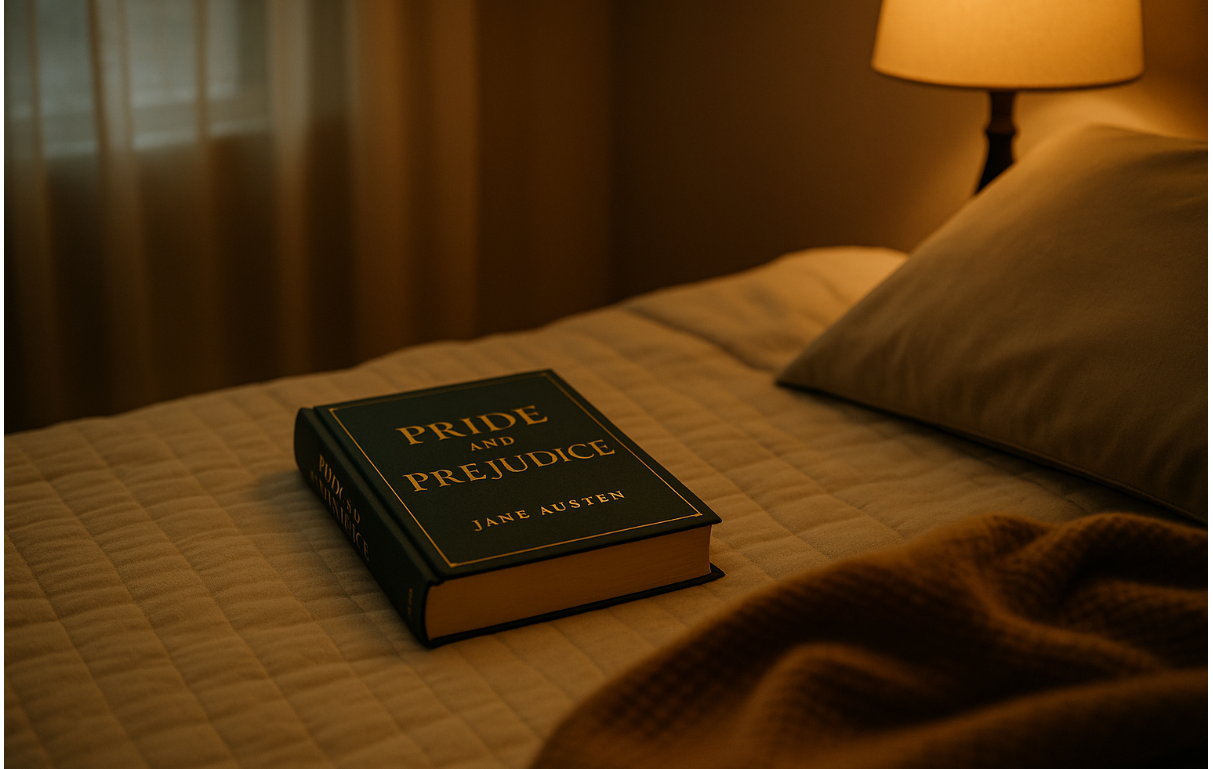The Shocking Psychology Behind Our Obsession With the Forbidden
March 23, 2025 | by Mindseek
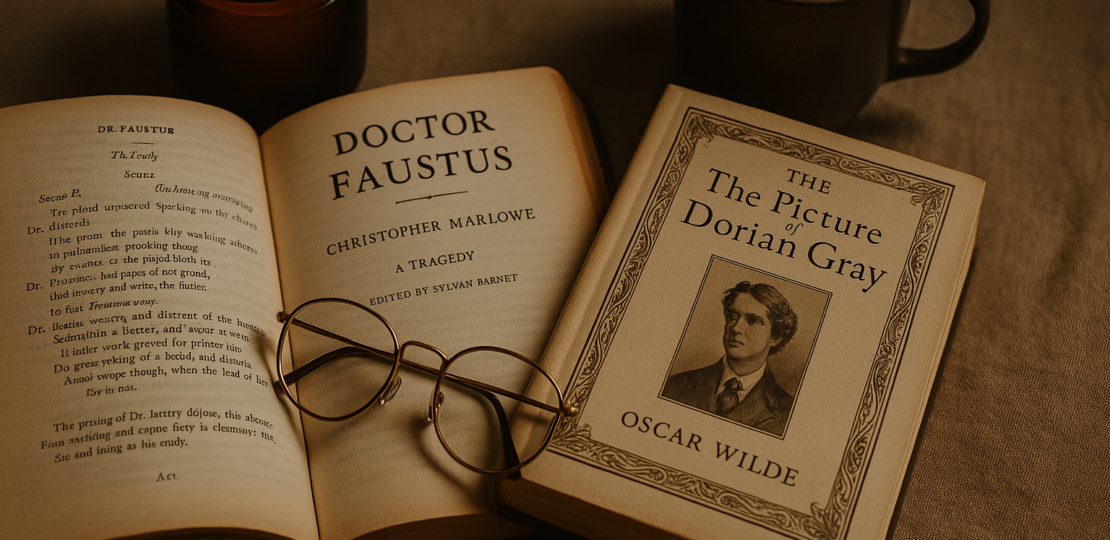
Why do we crave the forbidden? From Faustus’ thirst for knowledge to Dorian Gray’s pursuit of youth, explore the psychology behind our obsession with the unattainable.
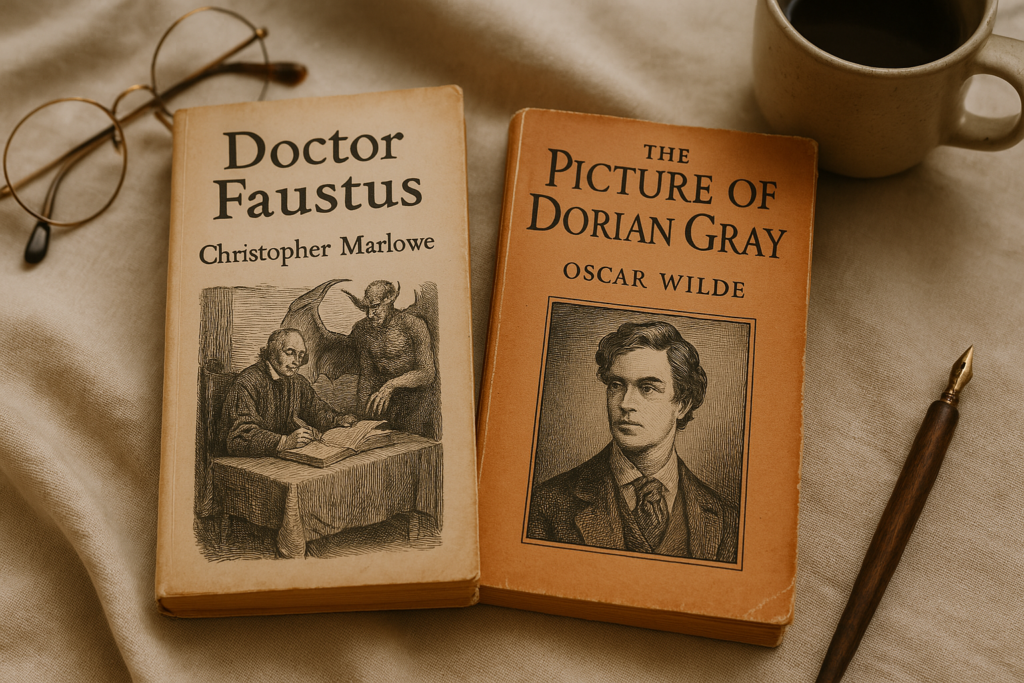
I first read Christopher Marlowe’s Doctor Faustus during my Master’s, and out of all the plays that filled our syllabus—Shakespearean tragedies, Congreve’s comedies—this was the one that would not let me go. True, I could have been taken by the sorrow of King Lear, the guilty conscience of Macbeth, or the doomed love affairs of Hamlet and Othello. Not so with Faustus, the man who sold his soul for knowledge, for truantly he was the one lingering in my mind long after the book had been slammed shut. He had everything; he simply wanted more.
I was so taken by the play that when a professor suggested we stage an enactment of it, I rather jumped at the chance. I adapted the script and directed the performance. Looking back, it feels fitting—I, too, was obsessed with Faustus’ hunger for the unattainable, scripting and shaping his story as if I could somehow understand his insatiable longing.
A few years after my post-graduation, I found yet another book that would similarly absorb me: Wilde’s The Picture of Dorian Gray. It had long been sitting on my TBR but on picking it again, I couldn’t shake off the feeling of uncanny familiarity. Faustus had forbidden knowledge; Dorian had eternal youth. Two men; two different bargains, but the same horrible fate-consumed by the very thing they once coveted.
Ironically, neither Marlowe nor Wilde makes their protagonists likable. And yet, here I am, drawn toward them, fascinated by them. Perhaps it’s because, like Faustus, I have an insatiable thirst for knowledge. Or perhaps it’s because, like Dorian, I dread the inevitable passing of time. And I suspect I’m not alone. After all, don’t we all in some way crave more than what we should? More time, more beauty, more knowledge—just one more, as if it would ever be enough.
Lord Henry was right to say, “To define is to limit.” Perhaps this is what makes Faustus and Dorian so magnetic—they will not accept limits, be they boundaries of morality, mortality, or consequence. And that may well be the other thing that pulls us readers toward their undoing.
From Eve’s apple to Pandora’s box, it is an age-old caution against the danger of forbidden knowledge in literature. And yet these narratives do not scare us; they draw us in. If it is so hazardous, then why can we not look away? Perhaps the real question is not why they fell, but why we keep following them to the edge.
The Seductive Allure of the Forbidden
Our obsession with the forbidden isn’t just a literary trope—it’s deeply rooted in psychology. Researchers distinguish between two kinds of curiosity:
- Epistemic curiosity—our drive to seek knowledge for the sake of knowing. This is the force behind scientific discoveries, artistic breakthroughs, and Faustus’ desire to grasp the secrets of the universe.
- Perceptual curiosity—our need to experience things that are hidden from us. This is what makes us peek at spoilers, click on “Do Not Open” articles, or stare at the locked door in a haunted house. This, perhaps, is what lured Dorian Gray into his fateful bargain.
Both Dr. Faustus and Dorian Gray are driven by different shades of this curiosity. Dr. Faustus embodies epistemic curiosity gone wrong. He doesn’t just want knowledge—he wants ultimate knowledge, the kind that defies human limits. He doesn’t ask whether he should know; he only asks how he can. Similarly, Dorian Gray’s story plays on perceptual curiosity—his portrait absorbs his sins, allowing him to live free from consequence. But the portrait still exists, still decays, still calls to him. His worst mistake? Looking at it.
Even Mephistopheles, the very demon Faustus bargains with, warns him, “Hell hath no limits, nor is circumscribed in one self place; for where we are is hell, and where hell is, there must we ever be.”
Curiosity isn’t dangerous by itself. The problem is that, like Faustus and Dorian, we’re drawn to things because they’re off-limits.
Modern Parallels: Are We Any Different?

It’s not just literature—our modern world is built on the same psychology of temptation. Consider:
- Why do people binge true crime podcasts, even when they give them nightmares?
- Why do we click on “shocking footage” warnings, knowing we might regret it?
- Why are we obsessed with conspiracy theories, secret societies, or dark web mysteries?
Perhaps it’s because, as Lord Henry Wotton puts it, “The only way to get rid of a temptation is to yield to it.” We are drawn to what we shouldn’t have, see, or know because of the same psychological force that led Faustus to summon Mephistopheles and Dorian to make his fateful wish. We want to touch the flame, just to see if it burns. Faustus and Dorian may seem extreme, but they’re just literary versions of our own impulses—the part of us that wants to peer behind the curtain, open the forbidden door, or, at the very least, read the spoiler thread.
The Playful Tragedy of Human Nature
If history has taught us anything, it’s that “Don’t do this” is a guaranteed way to make people do exactly that. Just ask Prometheus, Icarus, or anyone who has ever clicked on a spoiler thread for a show they swore they wouldn’t ruin for themselves.
Faustus sold his soul for ultimate wisdom. Dorian sold his for eternal beauty. I, personally, have considered selling mine for the ability to function on four hours of sleep.
But beneath the humor, there’s a very real truth: unchecked curiosity can consume us. These characters aren’t tragic just because they made terrible deals—they’re tragic because they never knew when to stop.
What Can We Learn?
So how do we apply this to our own lives? The key isn’t to fear curiosity—it’s to recognize when it’s leading us somewhere we don’t truly want to go. Here are three takeaways:
- The “Faustian Bargain” Test: Before making a decision, ask yourself: What am I sacrificing?
- Overworking to gain status?
- Compromising values for quick success?
- Chasing an illusion of perfection at the expense of real happiness?
Faustus thought he was gaining unlimited power, but he was really trading his soul. What are we unknowingly trading in our own pursuits?
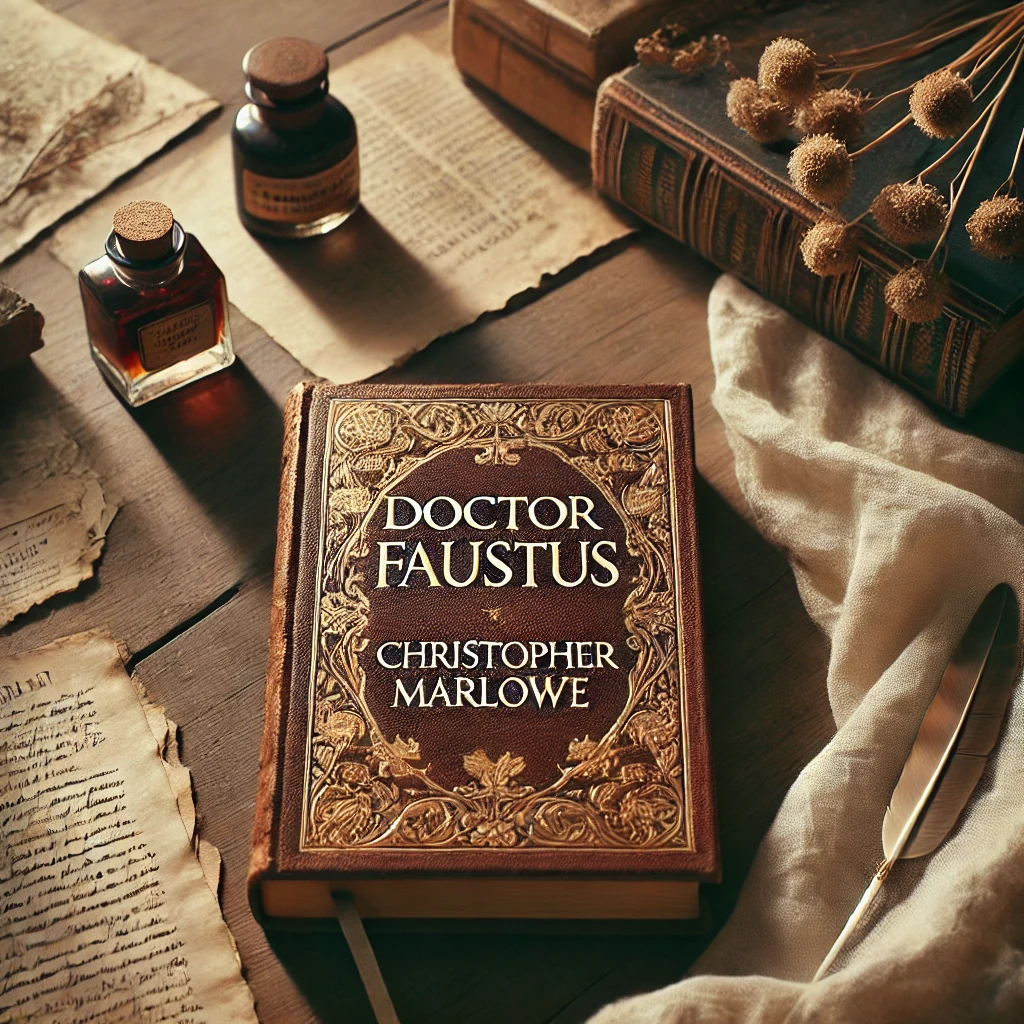
- The “Dorian Gray” Mirror Check: In today’s world, the pursuit of perfection is everywhere:
- Social media perfection: Curating a flawless image while reality crumbles.
- The illusion of “one more” success: Never feeling satisfied, always chasing the next achievement.
- Avoiding hard truths: Ignoring the signs of burnout, bad relationships, or unhealthy habits.
Like Dorian, we must ask: Am I chasing something real, or just avoiding reality?
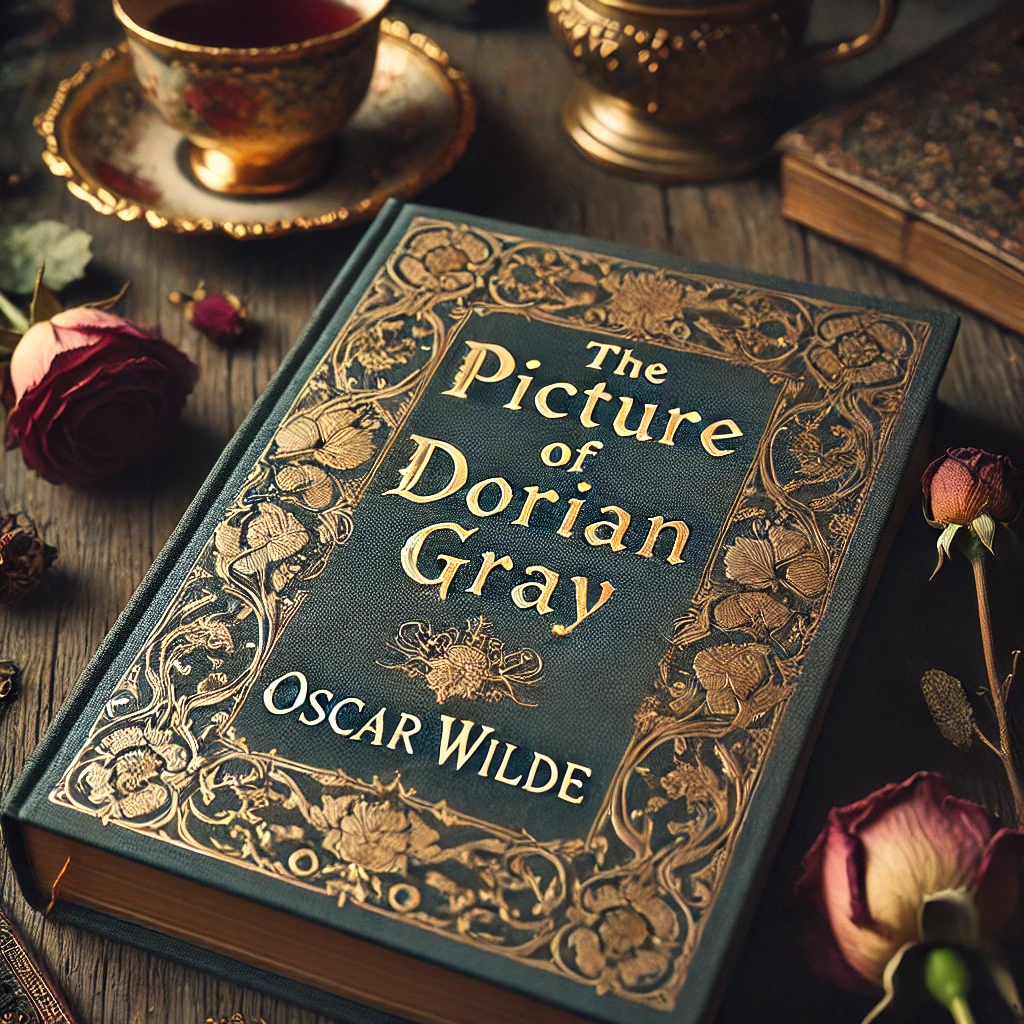
- Curiosity with Caution: Instead of fearing curiosity, we should direct it. Some knowledge is worth pursuing—wisdom, self-awareness, deeper understanding. But some knowledge (like Faustus’ magic or Dorian’s eternal youth) only traps us. Before diving into something, ask:
- Will this knowledge serve me, or control me?
- Do I want to know this for growth, or just for the thrill of knowing?
- If I find out, will I be better off—or just haunted by the truth?
Not all knowledge is bad—but not all knowledge is necessary. Seek what enriches rather than consumes.
Final Reflection: The Key to Forbidden Knowledge
Maybe we read these stories not because we want to make the same mistakes, but because we want to see what happens when someone else does. And maybe that’s the safest way to explore the forbidden—through the pages of a book.
The key isn’t to stop being curious. It’s to ask better questions before we open the door.
So next time temptation whispers in your ear, ask yourself: Is this my Faustian bargain? My Dorian Gray portrait? And most importantly—Is it worth it?
RELATED POSTS
View all


